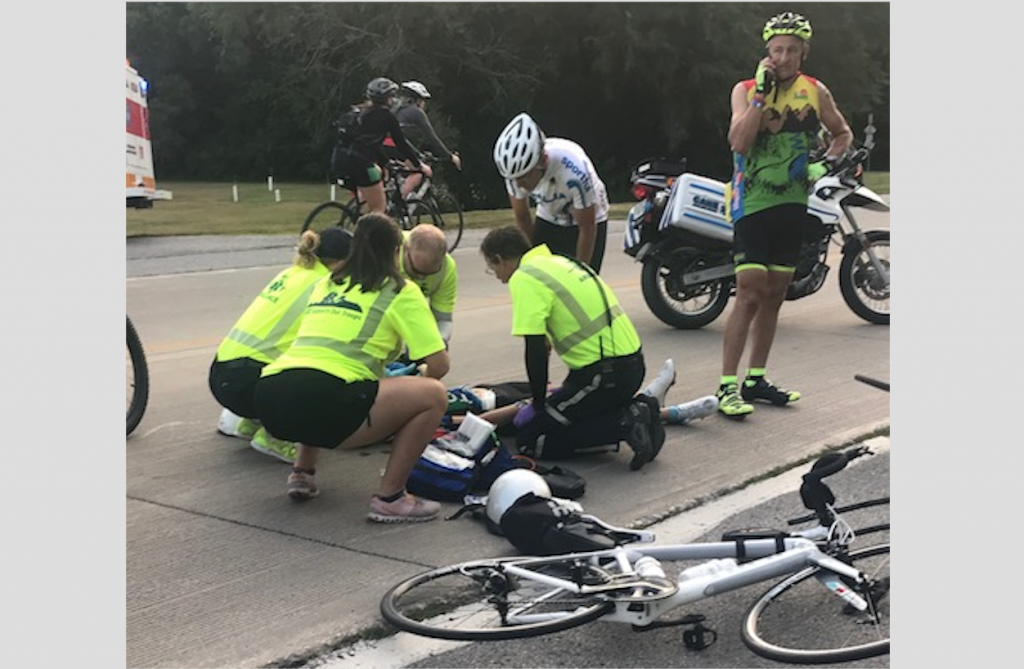With thousands of cyclists crossing the state this week, not everything is going to go according to plan. When cyclists crash or have any medical concerns or injuries, they can count on a team of University of Iowa Hospitals & Clinics physicians as well as Iowa City-based Care Ambulance paramedics to help them out.
Care Ambulance owner Bob Libby has worked on RAGBRAI for 22 years. Care Ambulance provides a team of four ambulances, each with a nurse, first-year residents and a critical-care paramedic, as well as two motorcycles that ride along the route and stay nearby when riders need medical assistance. The mobile emergency room from UIHC also travels with the group . The large number of people and the variety of their medical concerns can present challenges to medical professionals.
RELATED: Your guide to RAGBRAI Iowa City
“[The hardest part] is just the sheer number of people and the possibility that something very serious could go wrong,” UI emergency-medicine resident Allie Kim said.
The team treats all sorts of injuries. There could be people who have fallen off their bicycles and might have broken bones, cuts, and head injuries or heat-related illnesses and dehydration or chest pains that might result from other medical conditions. Most injuries are minor and can be treated at the scene, but on average, the team transports 10 to 15 riders to local hospitals each day.
“We’ll pick them up, we’ll clean them up and get them going on down the road,” Libby said.
UI Clinical Professor Azeemuddin Ahmed, the executive vice chair of the UIHC Emergency Medicine Department, said dealing with cyclists on an open road is a different experience from working in an emergency room, and it comes with its own set of challenges.
During RAGBRAI, health-care professionals have to work in rain, wind, and extreme heat, as opposed to the controlled environment that Ahmed usually works in at the UIHC. In addition, he is limited in terms of the people and resources he has at his disposal while out on Iowa’s roadways. Having to transport patients is another challenge that the ride presents, he said.
For Ahmed, the work is rewarding because he gets to help and interact with people from all over who have come to enjoy the event.
“I think it’s an iconic event and represents the state of Iowa, and so we really appreciate that,” he said. “The bicycle ride is great, but I think the people and what it means to the state is something that we really enjoy.”
Although providing medical coverage to thousands of cyclists and working with many agencies is a lot of work, Ahmed thinks it’s worth it, and he enjoys helping people.



